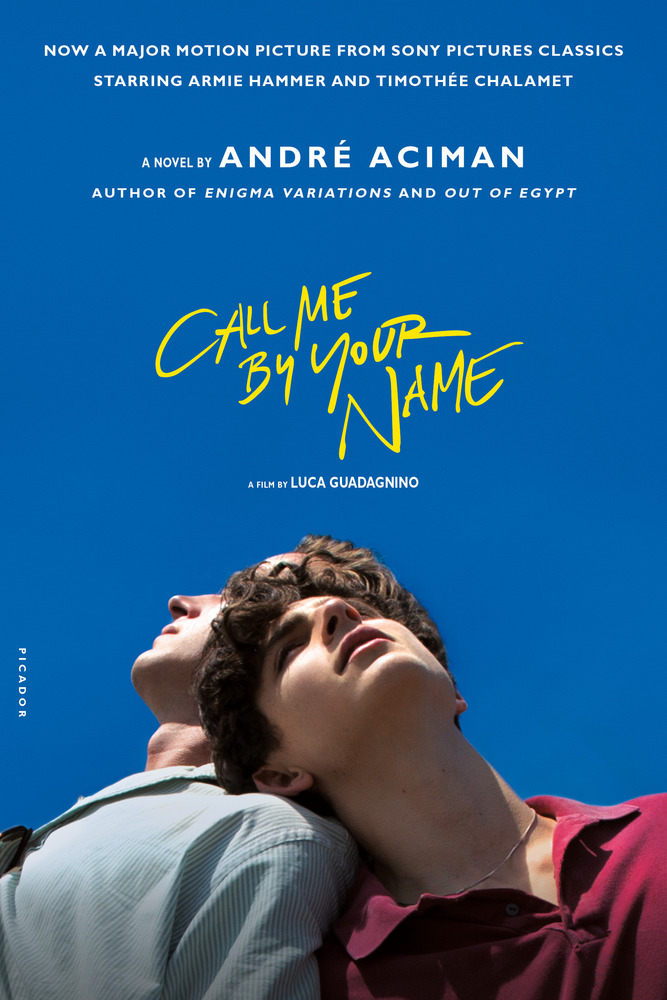The Novel Behind the Film: “Call Me By Your Name”

Marissa Secreto ’18 / Emertainment Monthly Editor
This awards season, an independent film titled Call Me By Your Name has taken Hollywood by storm. Starring Timothée Chalamet and Armie Hammer, the film tells the story of 17-year-old Elio living in northern Italy in the 1980s. Elio’s family hosts a student from America every summer, and the whirlwind romance between Elio and 24-year-old Oliver that ensues has captured the hearts of millions. Nominated for three Golden Globes, including best actor and best film, Call Me By Your Name’s success shows its ability to transcend and push the boundaries of perception.
However, before director Luca Guadagnino made the film a reality, Call Me By Your Name hit the bookshelves in 2007. Its lasting influence has generated a new audience that desires popular, mainstream LGBTQ+ romances such as Elio and Oliver’s.
André Aciman’s novel is told in four parts with Elio as its narrator. Aciman’s lyrical prose conveys Elio’s journey from yearning for a seemingly unobtainable Oliver, to their two-week relationship, to the loss that follows afterward. Elio’s thoughts show the precocious spirit of a 17-year-old boy discovering his sexuality while also including the reflection of a middle-aged Elio who is still impacted by the relationship of his youth. Aciman delves into the psychology of having one’s life so wholly impacted by an all-consuming love and how it is better feel a love that society deems as unnatural than to pretend as if those feelings never existed at all.
Reoccurring themes throughout the novel show these ideas of forbidden love and the everlasting influence of time. Elio spends the majority of the novel keeping his feelings for Oliver quiet and feels as if they will never be reciprocated. However, Aciman plays on the idea of action and timing. Oliver asks of Elio, “If not later, when?” which shows the pressure put on one’s desire to act now or act later. The characters further discuss the idea of whether it is better for one to speak and be rejected than to never speak at all. Themes such as these show Aciman’s way of conveying to his audience both the urgency and the need for action within one’s youth. One must act now before the potential love slips away.
The film adaptation acts as a wonderful companion to the novel but does not replace it. The film stays faithful to the novel, and many scenes mirror the moments on the page. However, for those who only watch the film, they miss Elio’s inner monologue. Timothée Chalamet’s nuanced acting allows for him to express complex emotions without speaking aloud his thoughts or having voice-over narration.

Yet, those who have read the novel can more wholly understand the internal progression of Elio from his moments of intense hesitation and doubt to his acceptance and security within himself. The film also ends before the fourth part of the novel, which shows Elio and Oliver twenty years in the future. This leaves the film version open to potential sequels, but filmgoers miss out on the ultimate culmination of the story of Elio and Oliver.
Despite the novel’s beautiful writing and intellectual posings, the film does add more personality and characterization. Being in Elio’s head, the novel misses out on the emotional complexities of Oliver, which the film dives into through Armie Hammer’s sincere performance. The novel also can get stuck on one idea that can be discussed anywhere from several sentences to several pages. The film masterfully takes Aciman’s ideas and transforms them into rich yet concise dialogue that is equally as powerful.
Working as companions, Call Me By Your Name’s film and novel deserve equal attention and analysis. Elio and Oliver’s full story can only be taken in through the absorption of both mediums. Their path shows a heartfelt, yet heartbreaking progression that one finds is needed most during these modern times.
Call Me By Your Name was released in select theaters on November 24th and will be released nationwide on January 19th. The novel is available for purchase or rent at a local bookstore or library.